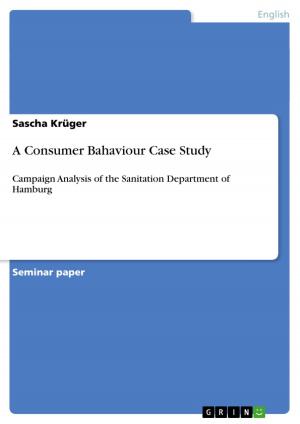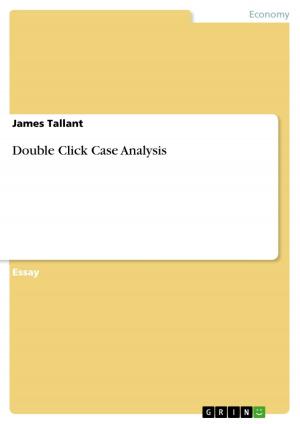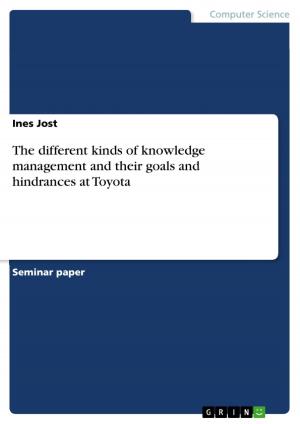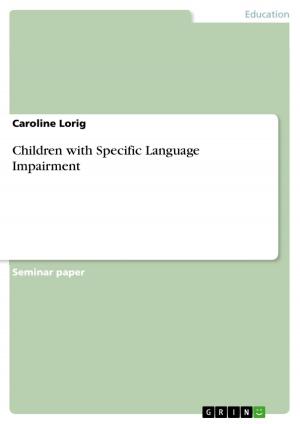The Possible Accession of Turkey to the EU. A Turkish and a German Perspective
A Turkish and a German Perspective
Nonfiction, Social & Cultural Studies, Social Science, Sociology| Author: | Christiane Landsiedel | ISBN: | 9783638353960 |
| Publisher: | GRIN Publishing | Publication: | March 1, 2005 |
| Imprint: | GRIN Publishing | Language: | English |
| Author: | Christiane Landsiedel |
| ISBN: | 9783638353960 |
| Publisher: | GRIN Publishing |
| Publication: | March 1, 2005 |
| Imprint: | GRIN Publishing |
| Language: | English |
Essay from the year 2005 in the subject Sociology - Political Sociology, Majorities, Minorities, grade: B, University of Dalarna (Master's Programme: European Political Sociology), course: The EU After Enlargement, 15 entries in the bibliography, language: English, abstract: Turkey can be characterized by two contrasting images. On the one hand, the country has been a staunch member of NATO for over 50 years. It has a thriving democracy, a lively free press and a stable government with a big parliamentary majority. Although most of its people are deeply religious, Turkey is ferociously secular. Moreover, its economy is booming: during the past two years, the GDP has risen by an annual average of 8.4 percent and inflation has fallen by three-quarters, near to single figures. In contrast to the current EU, this country has a young and growing population. Its biggest city was a cradle of Christian (and European) civilisation. To sum up, with regard to the mentioned facts, Turkey seems to be a promising gain for the European Union. But also the following aspects depict Turkey: it is situated mostly in Asia and it borders such worrisome countries as Iraq, Syria and Iran. The country's economy has been a hopeless case for decades, its currency has been repeatedly devalued, many of its banks are ailing and it is one of the largest debtors of the IMF. Turkey is far poorer than eve n the poorest of the ten countries that joined the EU in May 2004. It has a history of military coups and its frightful human-rights record and the torture of prisoners are well documented. Its people, who are for the most part Muslim, could soon form the EU's biggest population. Briefly, as far as these issues are concerned, Turkey seems to lose any attractiveness to join the Union. This portrayal of Turkey in such utterly contrasting ways explains why Turkey presents such a critical questio n for the EU. No other country's presumed membership has arisen such excitement and many several European commissioners have voiced their reservations against the joining of Turkey. In September 2004, a further controversy broke out over a Turkish government proposal to criminalize adultery, which was hastily abandoned after strong protests from Europe. Last year, the Turkish Prime Minister, Recep Tayyip Erdogan, has become a central actor on the European agenda, urging the case for starting membership talks.
Essay from the year 2005 in the subject Sociology - Political Sociology, Majorities, Minorities, grade: B, University of Dalarna (Master's Programme: European Political Sociology), course: The EU After Enlargement, 15 entries in the bibliography, language: English, abstract: Turkey can be characterized by two contrasting images. On the one hand, the country has been a staunch member of NATO for over 50 years. It has a thriving democracy, a lively free press and a stable government with a big parliamentary majority. Although most of its people are deeply religious, Turkey is ferociously secular. Moreover, its economy is booming: during the past two years, the GDP has risen by an annual average of 8.4 percent and inflation has fallen by three-quarters, near to single figures. In contrast to the current EU, this country has a young and growing population. Its biggest city was a cradle of Christian (and European) civilisation. To sum up, with regard to the mentioned facts, Turkey seems to be a promising gain for the European Union. But also the following aspects depict Turkey: it is situated mostly in Asia and it borders such worrisome countries as Iraq, Syria and Iran. The country's economy has been a hopeless case for decades, its currency has been repeatedly devalued, many of its banks are ailing and it is one of the largest debtors of the IMF. Turkey is far poorer than eve n the poorest of the ten countries that joined the EU in May 2004. It has a history of military coups and its frightful human-rights record and the torture of prisoners are well documented. Its people, who are for the most part Muslim, could soon form the EU's biggest population. Briefly, as far as these issues are concerned, Turkey seems to lose any attractiveness to join the Union. This portrayal of Turkey in such utterly contrasting ways explains why Turkey presents such a critical questio n for the EU. No other country's presumed membership has arisen such excitement and many several European commissioners have voiced their reservations against the joining of Turkey. In September 2004, a further controversy broke out over a Turkish government proposal to criminalize adultery, which was hastily abandoned after strong protests from Europe. Last year, the Turkish Prime Minister, Recep Tayyip Erdogan, has become a central actor on the European agenda, urging the case for starting membership talks.















